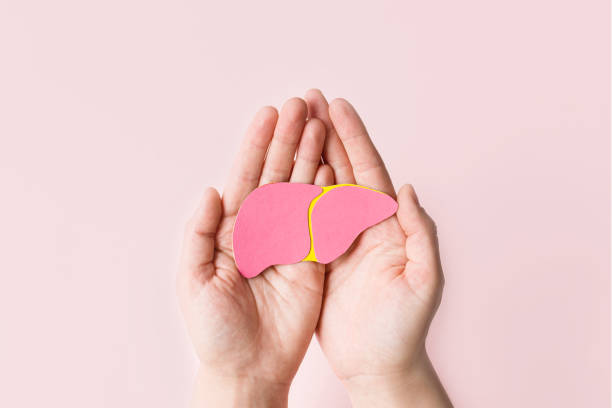Quick Answer: Yes. Hepatitis A, B, and (rarely) C can spread without penetration, through oral-genital, oral-anal, and certain skin-to-skin contact involving bodily fluids or microscopic blood exposure.
Case Study: “We Never Had Sex… But I Still Got Hepatitis”
Andre, 24, was certain he was in the clear. He and his partner had agreed on “no penetration” to stay safe. They stuck to oral and mutual touching. A month later, Andre was in the ER with severe nausea, abdominal pain, and jaundice. Tests confirmed Hepatitis A.
“I felt stupid. I thought no penetration meant no risk. My doctor explained that oral-anal contact is one of the main ways Hep A spreads.”
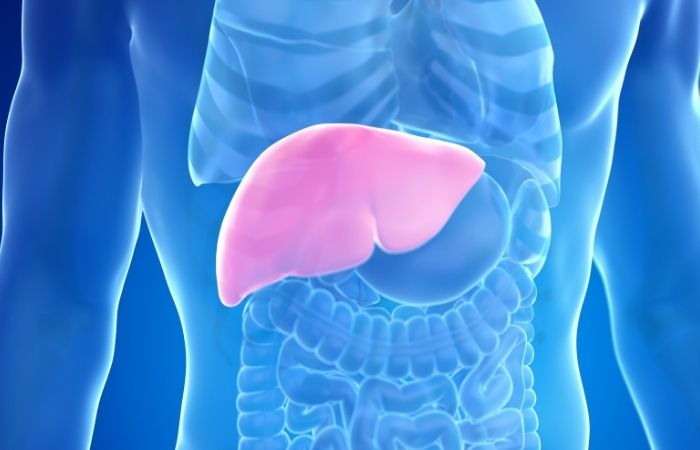
People are also reading: The Honeymoon Isn’t the Time to Find Out: Get Tested First
Breaking Down the Hepatitis Family
Hepatitis isn’t one virus, it’s a group of viruses that target the liver. The three most relevant for sexual transmission are:
- Hepatitis A: Spread through the fecal-oral route, often by rimming or touching dirty hands or toys.
- Hepatitis B is found in semen, vaginal fluids, and blood. It can be spread through oral-genital or oral-anal sex if the fluids come into contact with mucous membranes or open cuts.
- Hepatitis C: Mostly blood-to-blood, and there is a low risk from non-penetrative acts unless there is bleeding.
They all have their own incubation periods, symptoms, and ways to avoid getting sick, but they can all be serious if not treated right away.
How Hepatitis Can Still Spread Through Non-Penetrative Acts
Risk is present in many situations even when there is no penetration:
- Rimming, or oral-anal contact, is a high-risk activity for Hepatitis A because it could lead to fecal contamination.
- Oral-genital contact: If semen, vaginal fluid, or pre-ejaculate comes into contact with mucous membranes, especially if there are cuts or sores, there is a risk of getting
- Hepatitis B.
- Mutual masturbation with body fluid exchange: Not common, but possible for Hepatitis B if fluids touch mucous membranes or cuts in the skin.
- Deep kissing with bleeding gums: Very low chance of getting Hepatitis B, but it is possible.
These aren't reasons to skip these activities altogether; they're just reminders that timing, barriers, and vaccines are important.
Early Symptoms That Signal a Problem
Hepatitis symptoms may appear weeks after exposure, making it easy to miss the connection. Watch for:
- Fatigue and loss of appetite
- Fever, nausea, and abdominal pain
- Dark urine, pale stools
- Yellowing of skin or eyes (jaundice)
Even mild symptoms deserve attention if you’ve recently had sexual contact of any kind involving bodily fluids.
Check Your STD Status in Minutes
Test at Home with Remedium8-in-1 STD Test Kit

 For Men & Women
For Men & Women Results in Minutes
Results in Minutes No Lab Needed
No Lab Needed Private & Discreet
Private & DiscreetOrder Now $149.00 $392.00
For all 8 tests
Why “No Penetration” Is Not a Guarantee
When we think about sexual health, the focus is usually on penetrative sex. That leaves a gap in awareness for the risks tied to oral-genital, oral-anal, or even skin-to-skin contact. This gap can lead to false confidence, especially in younger or newly active individuals who believe they’ve found a “safe” loophole.
While non-penetrative activities are lower risk for many STDs, Hepatitis A and Hepatitis B have transmission pathways that make them relevant in these contexts. Bodily fluids, microscopic amounts of fecal matter, and tiny breaks in skin or mucous membranes can all open the door for infection.
How Long Before Hepatitis Symptoms Appear?
The time between being exposed and having symptoms that are easy to see varies:
- Hepatitis A: 15 to 50 days (28 days on average)
- Hepatitis B lasts from 60 to 150 days, with an average of 90 days.
- Hepatitis C: 14 to 180 days (average 45 days)
You might feel perfectly fine during this time, but you could be contagious without even knowing it. This is why it's important to get tested even if you think you're fine.
Your Best Way To Stay Safe Is To Get Vaccinated.
There is no vaccine for Hepatitis C, but there are very good vaccines for Hepatitis A and Hepatitis B. If you have sex and haven't gotten the vaccine, you should make an appointment with your doctor or a nearby clinic.
Some clinics also offer post-exposure prophylaxis (PEP) for Hepatitis B if you’ve been in a high-risk situation within the past 14 days, an option many people don’t realize exists.

People are also reading: Connecticut’s Hidden Epidemic: Why STIs Are Rising Among High-Income Adults
Reducing Risk Without Killing the Mood
Having safer sex doesn't have to mean having less fun sex. Here are some useful tips that will make you happy:
- For oral-genital contact, use flavored condoms. For oral-anal contact, use dental dams.
- Put some lube on to lower friction and cut down on microtears that raise the risk.
- Get the timing right: Don't do oral sex when you have cold sores, bleeding gums, or your period.
- Keep your toys clean: Use soap and warm water to wash, or use disinfectants that are safe for toys between partners.
These aren’t just hepatitis-specific strategies, they protect against multiple STDs while keeping intimacy intact.
Stigma-Slaying: Why We Need to Talk About Non-Penetrative Risks
When non-penetrative sex is left out of safer sex education, we send the message that it’s “not real sex” or “not risky.” This silence breeds shame when someone gets sick from activities they thought were safe.
Talking about these risks openly isn't about being scared; it's about giving people the tools they need to protect themselves without being judged. The more we talk about these things, the easier it is to find a balance between fun and safety.
Test Now, Worry Less
Even though sex without penetration can be risky, you don't have to worry about it all night. Knowing your status is empowering, whether you're in a monogamous relationship or looking for new partners. You can quickly and privately test for hepatitis and other common STDs at home with STD Rapid Test Kits.
Check Your STD Status in Minutes
Test at Home with RemediumHepatitis B Test Kit
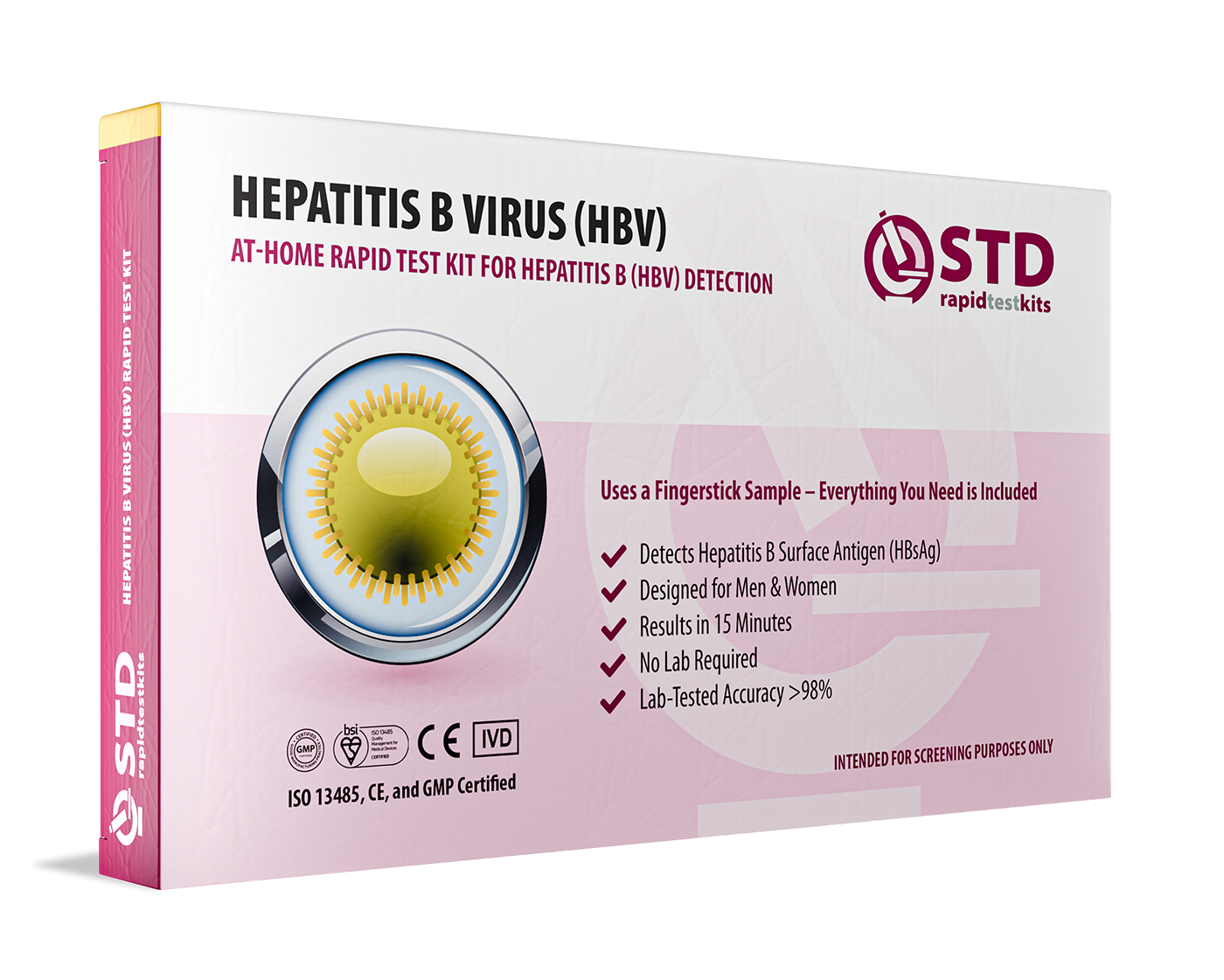
 For Men & Women
For Men & Women Results in Minutes
Results in Minutes No Lab Needed
No Lab Needed Private & Discreet
Private & DiscreetOrder Now $33.99 $49.00
Case Study: “It Was Just a Party Hookup”
Lena, 29, had a fling at a music festival. No intercourse, just intense kissing, mutual touching, and a playful round of oral-anal contact. Two weeks later, she started feeling off: low energy, nausea, and dark urine. A clinic visit confirmed Hepatitis A.
“I thought rimming was a fun, low-risk thing,” Lena recalls. “I didn’t realize it could make me this sick. Now I tell my friends to get the Hep A vaccine before they play.”
High-Risk Scenarios for Non-Penetrative Transmission
- Rimming (oral-anal contact): This practice has been linked to Hepatitis A outbreaks in several countries.
- Oral sex with ejaculation: If the person receiving it has oral sores or gum disease, there is a moderate risk of getting Hepatitis B.
- Deep kissing with active gum bleeding: a rare but possible way to get Hepatitis B.
- Using shared sex toys without cleaning them can put you at risk for Hepatitis B if they get fluids on them and then are used orally or anally.
If you know about these situations, you can make small changes, like using barriers or getting vaccinated, that greatly lower your risk of getting sick.
Testing: Timing and Correctness
It's important to know the best times to test because testing too early can give you false negatives:
- Hepatitis A: Blood tests are correct once symptoms show up, which usually happens 2 to 6 weeks after the first symptoms.
- Hepatitis B: The first test is done 6 weeks after exposure, and then follow-up tests are done at 3 and 6 months.
- Antibody tests for Hepatitis C can be done at 12 weeks, but RNA tests can be done as early as 2 to 4 weeks.
If you’ve had a possible exposure, don’t delay, book a test now and schedule follow-ups if necessary. Many clinics and at-home kits can provide results in just days.
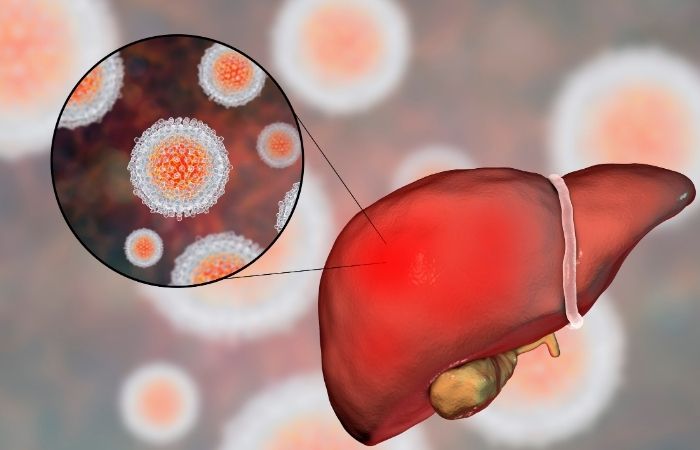
People are also reading: Can You Really Get Hepatitis From Oral Sex?
Expert Insight: The Role of Oral Health
According to the Centers for Disease Control and Prevention, damaged oral tissues, such as bleeding gums, ulcers, or recent dental work, can significantly increase the risk of hepatitis transmission during oral-genital or oral-anal contact. Maintaining good oral hygiene and avoiding sexual activity when your mouth is healing are simple but effective harm-reduction strategies.
Think of your mouth like a gate, when it’s intact, it’s harder for viruses to get through. When it’s damaged, it’s an open door.
Your Testing Choices
Testing at a clinic is usually free or low-cost and reliable, but it isn't always easy to get to or private. That's when home solutions come in. This at-home combo test kit can check for several STDs, including hepatitis, and can be sent to your door without anyone knowing. The results are quick, correct, and easy to understand.
The Science of Hepatitis Survival Outside of the Body
Knowing how long each hepatitis virus can live outside the body helps us understand why it can spread without entering the body. Hepatitis A can live on surfaces for weeks, especially in wet places. This is why it is often connected to foodborne and fecal-oral spread. Hepatitis B is even tougher; it can live in dried blood or fluids for up to seven days. Hepatitis C isn't as stable, but it can last for a few days in some situations.
This means that even small amounts of dirty fluids on sex toys, hands, or oral surfaces could, in theory, cause an infection if they come into contact with mucous membranes or broken skin.
Check Your STD Status in Minutes
Test at Home with RemediumHepatitis C Test Kit
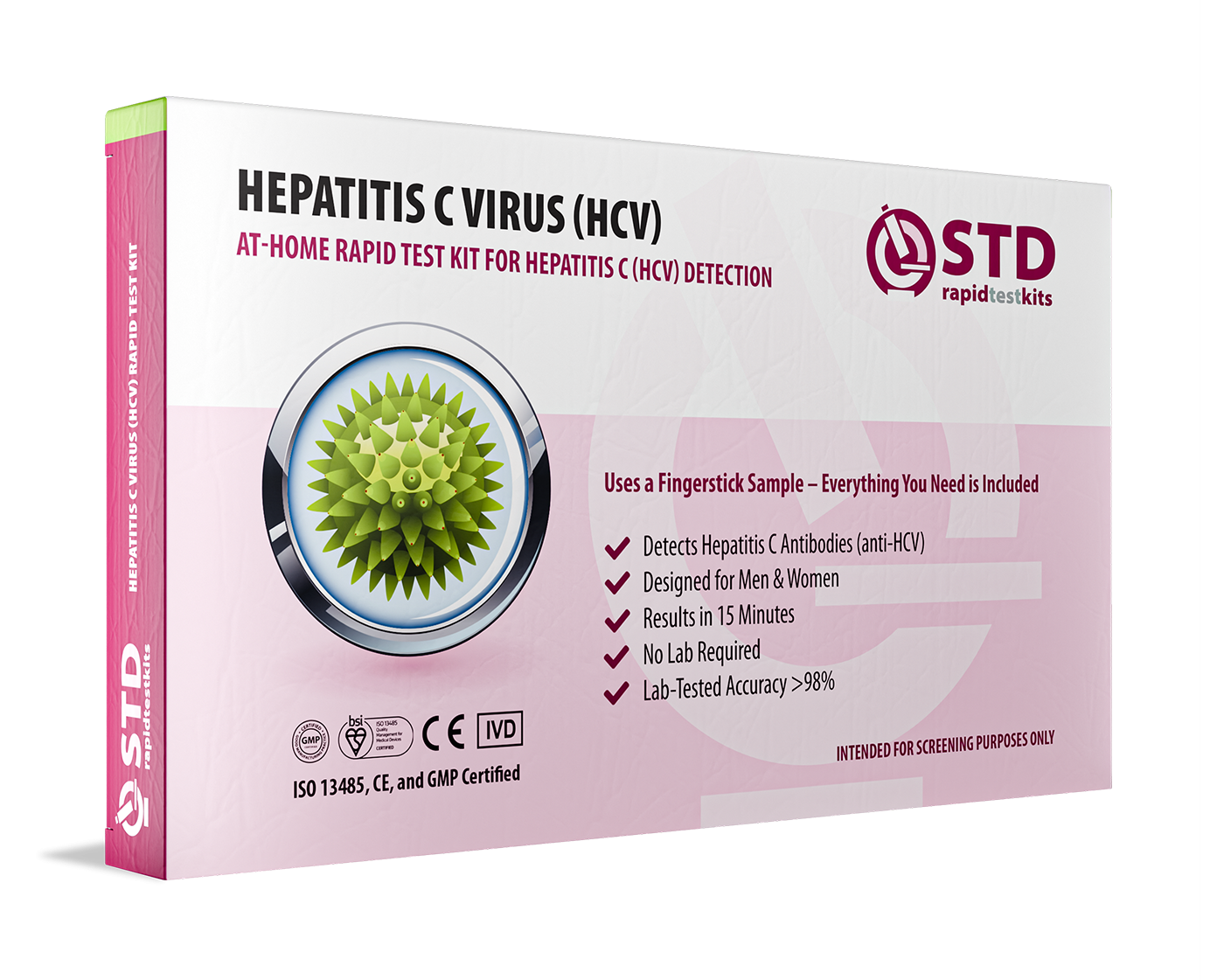
 For Men & Women
For Men & Women Results in Minutes
Results in Minutes No Lab Needed
No Lab Needed Private & Discreet
Private & DiscreetOrder Now $33.99 $49.00
Why Oral Hygiene Matters More Than You Think
Bleeding gums, mouth ulcers, and recent dental work can all make oral tissues more vulnerable to infection. If your gums bleed during brushing, you’re more likely to have micro-openings that allow viruses in. The same applies to your partner, oral health is a shared responsibility when it comes to lowering sexual transmission risks.
Experts recommend avoiding oral sex for at least 24–48 hours after dental procedures and until any bleeding stops. Pairing good oral care with barrier methods dramatically reduces the risk for hepatitis and other STDs.
Other Barrier Options Besides Condoms
Everyone knows that condoms are a good way to protect yourself, but there are other ways as well. Dental dams are thin sheets of latex or polyurethane that keep fluids that carry viruses from getting into the mouth, genitals, or anus. They are very helpful for oral-anal play, which has the highest risk of Hepatitis A.
Other fun ideas are to cut open a condom to make a flat sheet, use flavored ones for taste, and use lube with barriers to keep the feeling while staying healthy.
Other Ways You Can Catch It
Most sex-ed talks don't talk about how STDs can still be passed through non-penetrative activities, leaving out things like:
- Fluid Exchange: Scissoring, oral sex and other activities can still spread STDs through fluids.
- Sex Toys: If you're sharing sex toys, you need to wash them or, better yet, use protection, as sex toys can transmit STDs through leftover fluids.
- Digital-anal contact came first, then oral: If particles are moved, they can spread Hepatitis A.
By recognizing these overlooked routes, partners can make small but impactful changes, like washing hands, toys, and using gloves or barriers when needed.
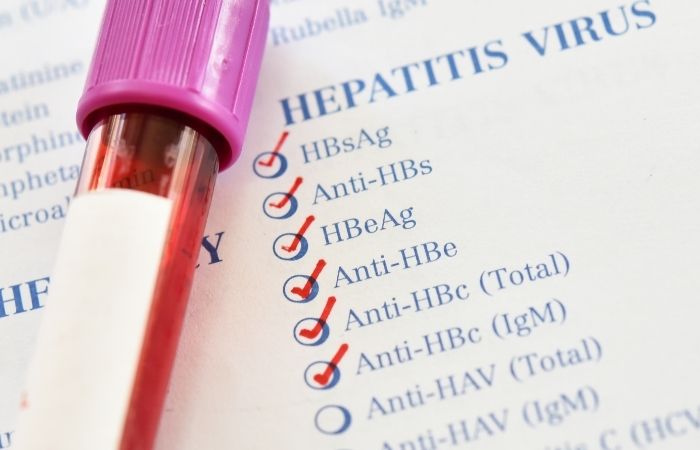
People are also reading: The Rural Colorado STD Surge No One Is Talking About
Why It's important To Get Tested Even If You Don't Have Any Symptoms
A lot of people who have Hepatitis B or Hepatitis C don't have any obvious symptoms in the beginning. You can feel fine and still have the virus and pass it on to others. Because this virus spreads quietly, anyone who is sexually active, especially those who have oral or anal contact without protection, should get tested regularly.
Testing also gives you peace of mind and, if the test is positive, it lets you get treatment or a vaccine before your liver gets too damaged.
Check Your STD Status in Minutes
Test at Home with RemediumHepatitis B & Hepatitis C Test Kit
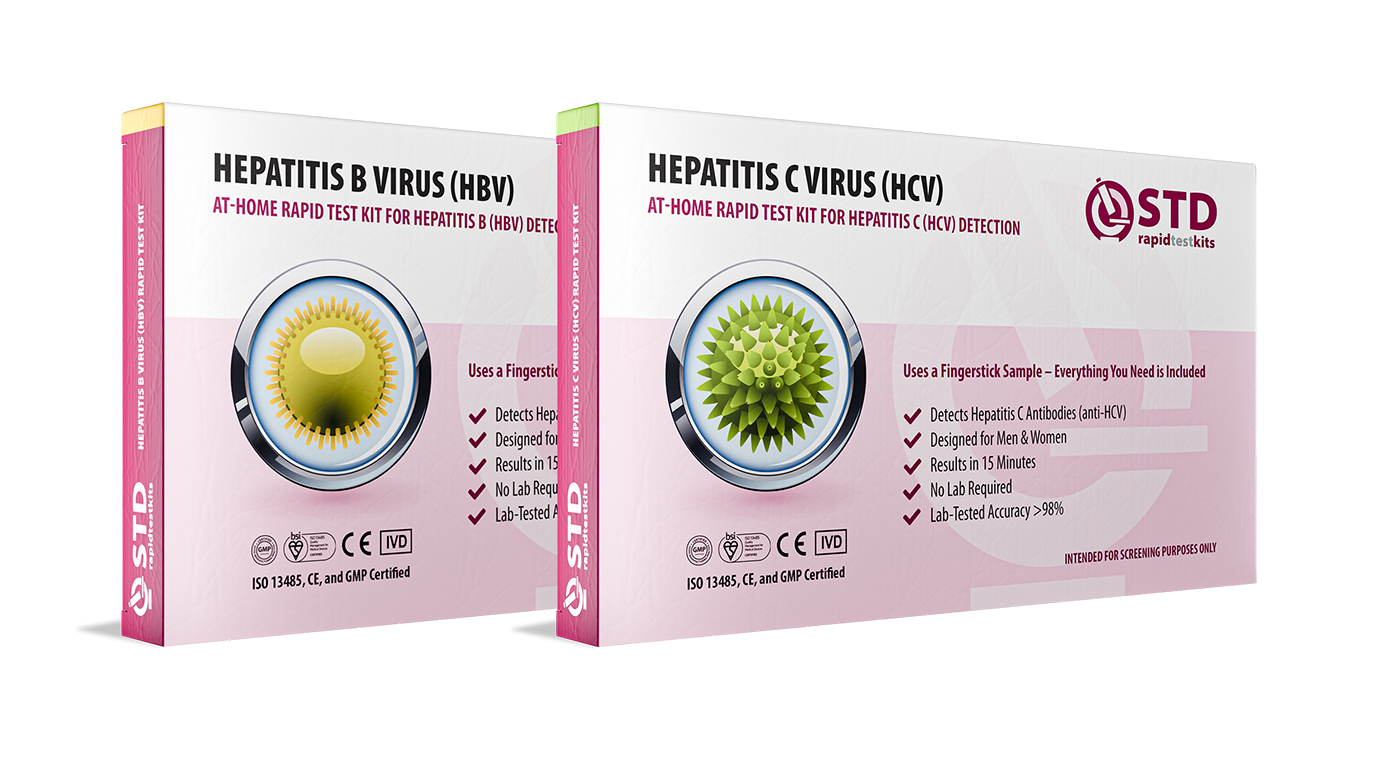
 For Men & Women
For Men & Women Results in Minutes
Results in Minutes No Lab Needed
No Lab Needed Private & Discreet
Private & DiscreetOrder Now $49.00 $98.00
For all 2 tests
FAQs
1. Can you get hepatitis from oral sex without penetration?
You can, yes. Especially with Hepatitis A and B. All it takes is a little exposure to infected fluids, saliva, semen, vaginal fluids, or microscopic traces of fecal matter. You don’t need deep penetration for transmission. A tongue, a finger, a mouth that goes exploring the wrong patch of skin? That’s enough. It’s not about being dirty. It’s about biology.
2. Is kissing a risk for hepatitis?
Kissing, by itself, is generally safe. But if there’s blood, say, someone has bleeding gums, a mouth sore, or just flossed aggressively, then there’s a sliver of risk for Hepatitis B. It’s rare. Like “wrong place, wrong time” rare. But if one partner’s blood makes contact with an open cut in the other’s mouth, the door technically opens. Still, deep kissing without blood? Enjoy it. It’s not on the danger list.
3. Can dental dams stop hepatitis?
Hell yes. Dental dams are one of the most underrated tools in queer sex and preventive care. Thin latex squares don’t look like much, but they’re powerful. They block fluids, lower friction, and can make oral sex safer without killing the mood. Want a pro tip? Flavored ones exist. And if you don’t have one, cut a condom open and use it instead. That’s street-smart safety right there.
4. How soon after a possible exposure should I get tested?
This one’s a timeline game. For Hepatitis B, most health experts suggest testing at six weeks, then again at three and six months, especially if there are no symptoms. Hepatitis A tends to show up faster and hits harder with symptoms like nausea, yellowing eyes, and fatigue, so if you feel sick, test immediately. Hepatitis C is sneakier. You’ll want to test at around 12 weeks after exposure for the most accurate result. Earlier tests might miss it.
5. Can you get hepatitis from rimming?
Yes, especially Hepatitis A. This is one of the most well-known routes of transmission. It doesn’t take visible poop. Microscopic particles are enough. If you’re doing mouth-to-anus contact, the risk is real. Doesn’t mean you can’t rim. It just means you should wash, maybe barrier up, and know that even the cleanest-looking butt can carry bacteria. Pleasure and prevention can absolutely coexist.
6. Are vaccines available for all hepatitis types?
Not all. But the good news? We’ve got effective vaccines for Hepatitis A and B. Once you get them, your body builds strong, long-lasting immunity. Hepatitis C is the outlier, no vaccine yet. But that’s why knowing your status matters, especially if you're navigating multiple partners, kink scenes, or activities like sharing toys or rimming.
7. Does “no ejaculation” make oral sex safe?
It makes it safer, yes, but not safe. Hepatitis B can live in pre-cum, vaginal fluids, and blood. So even if no one finishes, the risk doesn’t disappear. A partner could be shedding virus without knowing. If you’re relying on "pull out" or "spit don't swallow" for protection, know that fluids may already be in the mix long before that final moment.
8. Can hepatitis live on sex toys?
Yes, and it can hang around longer than you'd think. Depending on the temperature, humidity, and surface, hepatitis viruses can survive on toys for hours, even days. That dildo you tossed on the nightstand and picked up again the next afternoon? Yeah, that could still be a risk. Always clean between uses. Soap and water are great. Antiviral toy cleaner is better. And if you’re sharing, switch condoms or barriers each time. It’s about care, not paranoia.
9. Can you be reinfected after clearing hepatitis?
That depends on the type. With Hepatitis A and B, once you’ve cleared the infection, or gotten vaccinated, you’re usually immune for life. But Hepatitis C doesn’t work that way. You can clear it, either naturally or through treatment, and still catch it again from a new exposure. That’s why it’s important to test regularly if you’re in a higher-risk group.
10. Do condoms prevent hepatitis?
Condoms aren't 100% effective preventing STDs, and that goes for all kinds of hepatitis. That said, they’re still one of your best tools. Add vaccines, testing, and communication, and you’re stacking the odds in your favor. Sex isn’t about eliminating risk, it’s about managing it without killing the vibe.
You Deserve Pleasure and Protection
Non-penetrative sex can be a fun and close way to connect, but it's not without risk. You can get hepatitis A, B, and even C (but not very often) without having sex. You can enjoy your sex life without worrying all the time if you know your risks, get vaccinated, and use protection when you need to.
Don't wait and wonder; get the answers you need. This discreet and quick at-home combo test kit checks for the most common STDs.
Sources
2. CDC: Viral Hepatitis Among Sexually Active Adults
3. WHO: Hepatitis B Fact Sheet






